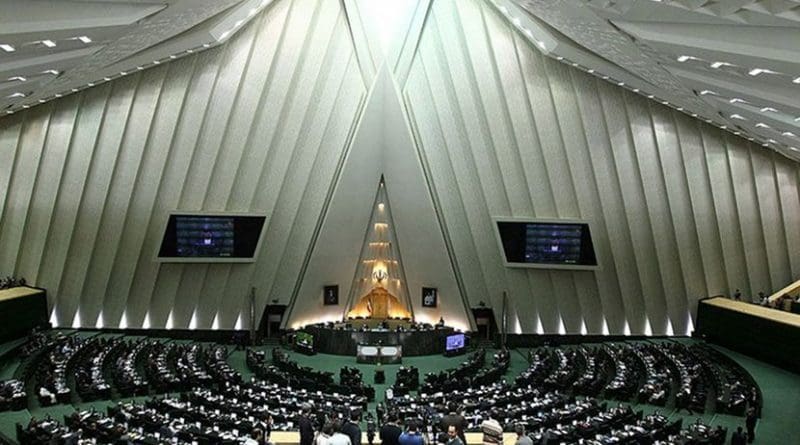Iran: Are Election Results A Cause For Another Uprising? – OpEd
The eleventh parliamentary elections were held in Iran on Friday, 21 February. In order to exaggerate the size of the turnout, the regime announced that 55,000 polling stations had been set up in mosques across the country and deployed more than 200,000 election observers. The number of candidates eventually reached 7,000, of which only 666 were women, meaning women were less than one-tenth of the number of men in the entire country.
According to some commentators, most candidates were non-political, unprofessional and inexperienced. Friday the World not only witnessed one of the most unprecedented electoral sanctions and disregard for the ballot box, but also a record of anger and disgust of the people who were plagued by economic problems, inflation, corruption, looting, and suppression of protests following the plane crash.
People surprisingly boycotted the election’s indecisive manner, and the posters of the candidates were torn down despite the presence of armed riot police. Many passers-by when asked by reporters why they didn’t vote replied that it was because every vote is equivalent to firing a weapon aimed at the people and protesters.
A citizen in Tehran said that both factions are corrupt and thieves. Another pedestrian in Karaj said, “41 years of lies are enough, we were caught in this dirty game for a lifetime, and 4 generations”. In Isfahan, a citizen said “We will not get confused between dogs and jackals, we will not partner with bad or worse. For 40 years they obtained their permit of betrayals from our votes”.
According to the Reuters news agency, a physician in Tehran whose clinic has struggled to provide special drugs said: “I used to vote in the past. I hoped things would get a little better by voting. But now they have crossed all red lines.”
Mohammad Gholi, 31, was sitting in a park in Tehran, drinking tea and chatting with his friends. He told Al Jazeera that he did not intend to vote. “I will not vote because the elections in Iran are useless,” he said. “They do not differ and are not even free and fair.”
“We don’t want this regime anymore.”
However, when viewed from the perspective of an external observer, the regime’s propaganda for the election gives a false perception that sometimes is portrayed in Western media that this would be a free pass for conservatives on their way to parliament, with the additional supposition that the Iranian parliament is a decision-maker!
But, in fact, the Iranian parliament is no more than a luxury building with comfortable seats, which is usually the place to take a nap. Ali Khamenei, in various decrees, has prevented parliamentarians from commenting on key and critical issues.
In fact, the parliament is a body of power in the total control of the supreme leader and he uses it as a lever to suppress the people. In recent years, the Iranian parliament, whatever its composition, has lost its influence. Khamenei has made the parliament ineffective in economic and political affairs by giving the authority to the Guardian Council as the body overseeing parliament’s resolutions.
An obvious example of this can be seen in the plan to raise gas prices in November 2019. Parliament sought to halt the plan, approved by the Economic Coordination Council of Heads of government branches, but withdrew on Khamenei’s behest. The Resistance Economic Command’s headquarters is, in fact, the supreme body of economic decision-making in Iran, and neither parliament nor government.
But Khamenei himself has failed to take full control of the situation in recent developments. Even within the Khamenei gang, there were divisions. This factional dispute showed up openly in their newspapers when a Khamenei-affiliated newspaper reminded and warned the gangs of the current devastating situation saying, “A sharp turn on road it is not a place to wrestle!”
It can be predicted from now that the next assembly will be the battlefield for a war of factions. Khamenei’s representative in Mashhad, Alam al-Hadi, emphasized the importance of this election, saying none of the previous elections was as dangerous and effective as this one. Rouhani, whose priority is the regime’s survival, has surrendered to the leader and is trying to close the gaps despite questioning the election and calling it as appointments.
Now the fears of both factions of the regime are the rift created by the elections at the top of the regime that can be used by the opposition and spark another uprising.
*Perviz S. Khazai: is a law graduate and former Apprentice diplomat in French Ministry of Foreign Affairs- in IIAP(ENA) Paris, in United Nations in Geneva- In Red Cross International- In Council of Europe in Strasbourg and International Court of Justice in The Hague 1969-1971. He served as an international law expert of foreign affairs in Tehran 1976-1979. He served as the head of the mission and acting ambassador in Norway and Sweden in 1979-1982.

